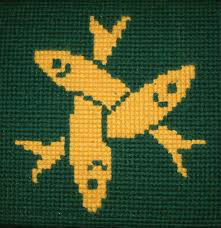SPIRIT Blog
“Christian faith is... basically about love and being loved and reconciliation. These things are so important, they're foundational and they can transform individuals, families.”
Philip Yancey
Dear Reader:
Of all the things inclusive churches have to offer our communities, I think Yancey’s quote comes closest to hitting the mark. By basing our mission on creating communities of faith with diverse experiences, we offer one another the opportunity to practice love and reconciliation time and again. The Way of Christ invites us to grow in relational skills for conflict transformation, reconciliation and love that lead to a graceful collective justice for all. It takes patience; it takes care; it takes growing trust; and it takes a community with the capacity to practice these skills together through the mistakes and missteps we make along the Way.
There is a reason that we speak of ‘practicing’ faith – many of its deepest lessons are learned only through a commitment to a long learning curve. Love, being loved and having the skills to reconcile can be difficult to manage in communities that are passionate and ever changing. As one generation learns these hard-won lessons, there is always the next that must learn anew. But an important belief that we can hand on is the idea that our past experiences with conflict and ‘unloving’ do not limit our capacity to become transformed in the ways of reconciliation and peace-building in our present and future.
We think of prayer, service and discipline as spiritual practices, but I wonder just how different our spiritual communities would be if we valued growing in our peace-building and relational skills with one another as just as enlightening as these other practices? After all, there are few practices that Christ taught to bring us closer to God that are not first learned in practicing loving relationship with one another. He said to us in several ways: how can we learn to love God without first learning to love one another? He never condemned anyone for the relational skills they may or may not have inherited in their past. Instead, he invited us to learn and practice kin-dom skills and trusted us, with Spirit’s guidance, to become part of a better world for all.
Glad you’re there,
Rev. Pressley
“Christian faith is... basically about love and being loved and reconciliation. These things are so important, they're foundational and they can transform individuals, families.”
Philip Yancey
Dear Reader:
Of all the things inclusive churches have to offer our communities, I think Yancey’s quote comes closest to hitting the mark. By basing our mission on creating communities of faith with diverse experiences, we offer one another the opportunity to practice love and reconciliation time and again. The Way of Christ invites us to grow in relational skills for conflict transformation, reconciliation and love that lead to a graceful collective justice for all. It takes patience; it takes care; it takes growing trust; and it takes a community with the capacity to practice these skills together through the mistakes and missteps we make along the Way.
There is a reason that we speak of ‘practicing’ faith – many of its deepest lessons are learned only through a commitment to a long learning curve. Love, being loved and having the skills to reconcile can be difficult to manage in communities that are passionate and ever changing. As one generation learns these hard-won lessons, there is always the next that must learn anew. But an important belief that we can hand on is the idea that our past experiences with conflict and ‘unloving’ do not limit our capacity to become transformed in the ways of reconciliation and peace-building in our present and future.
We think of prayer, service and discipline as spiritual practices, but I wonder just how different our spiritual communities would be if we valued growing in our peace-building and relational skills with one another as just as enlightening as these other practices? After all, there are few practices that Christ taught to bring us closer to God that are not first learned in practicing loving relationship with one another. He said to us in several ways: how can we learn to love God without first learning to love one another? He never condemned anyone for the relational skills they may or may not have inherited in their past. Instead, he invited us to learn and practice kin-dom skills and trusted us, with Spirit’s guidance, to become part of a better world for all.
Glad you’re there,
Rev. Pressley
